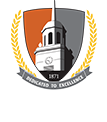
Child Advocacy Studies Training (CAST) is a nationally recognized curriculum to train students how to effectively address child abuse and neglect in real-world applications through multidisciplinary team coordination.
Overview
At SUNY Buffalo State, CAST is a three-course certificate program designed to prepare undergraduate students from a variety of disciplines to recognize and respond to child abuse and neglect.
Completion of the certificate is noted on student transcripts, much like a minor or major.
Although students are welcome to enroll in the CAST courses without completing the certificate program, students who wish to receive the certificate should contact Dr. Schuetze (schuetp@buffalostate.edu) for more information or to complete the necessary paperwork.
Why Child Advocacy Studies?
Child abuse and neglect negatively affect many children and their families and appropriate professional responses and services are often lacking.
This certificate program provides students with the knowledge necessary to prevent, identify and appropriately respond to situations involving child abuse and neglect.
CAST is recommended for any student considering post-graduation employment with a child protection agency or those students wishing to work with children or families in any professional capacity.
These courses are open to current undergraduate students from any major. Students can take CAS 301 alone or complete the entire set of courses.
Upon completion of the courses and portfolio, students will earn a notation on their academic transcript.
CAS 301/PSY 301: Perspectives on Child Abuse and Advocacy
Prerequisites: Junior or senior status; PSY 101 or CRJ 101 or SWK 101 or EXE 100 or Instructor permission
Introduction to child advocacy studies from a variety of diverse, professional perspectives. History, responses to child maltreatment, skills necessary to successfully conduct child advocacy, and other issues pertaining to child maltreatment and advocacy. Designed for students majoring in criminal justice, education, social work, sociology, psychology, or other areas where knowledge of child maltreatment and advocacy might be beneficial.
CAS 302 Global Child Advocacy Issues
Prerequisites: CAS 301 or PSY 301
Fulfills IF Diversity requirement
Issues related to the lives of children in countries around the globe and immigrant and refugee children locally. Multidisciplinary approaches to advocacy with these populations. Designed for students majoring in criminal justice, education, psychology, social work, sociology, or other areas where knowledge of child maltreatment and advocacy might be beneficial. This course may have a Service-Learning component and may require off-site engagement with the community during the semester.
CAS 401 Professional and Systemic Approaches to Child Abuse and Maltreatment
Prerequisites: CAS 301 or PSY 301, Junior/Senior standing
Child abuse and maltreatment including knowledge and skills identifying, investigating and prosecuting child abuse. Systems involved in responding to child abuse/maltreatment. Child witnesses, civil and criminal child protection cases. Please note this course will likely include guest speakers and off-site tours.
Testimonials
Olivia Bell, '23
"I appreciated the multidisciplinary aspect of the courses; I have taken CAS courses with students from many majors (e.g., psychology, social work, speech pathology, criminal justice, etc.) which provided a breadth of perspectives.
The CAS curriculum has inspired me to support children in my community, especially through volunteer work; I now volunteer weekly at Oishei Children’s Hospital and I credit my passion for community involvement in part to CAS.
While applying to developmental psychology Ph.D. programs it is a great bonus to include CAS in my undergraduate experiences; my earning a certificate in child advocacy studies showcases my dedication to work with and advocate for at-risk children."
Lindsay Prout, '23
"The Child Advocacy Studies (CAS) certificate program helped provide me with important knowledge and skills to allow me to thrive in my graduate program. This program taught me important skills such as the indicators of maltreatment, mandated reporting, the functions of the family court system, and much more.
The faculty and students involved in these courses come from a variety of backgrounds such as psychology, social work, criminal justice, etc., which allows for a variety of perspectives.
The CAS program has inspired my work with children and will allow me to be a more well-rounded and educated social worker in the future. I highly recommend this program to anyone who wants to work with children."

